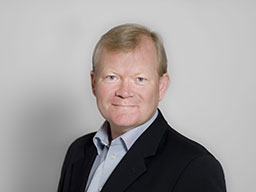What’s it about?:A reminder about the importance of values
They are everywhere.
And they potentially have a huge impact on your life.
And what’s more…
They come in many different forms.
I am talking about VALUES.
Personal Values
Family Values
Cultural Values
Organisational Values
Team Values
Country Values
Like I said, they can influence so many different areas of your life.
For example, I recently discovered that the nationally defined values of Great Britain are:
Democracy
The rule of law
Individual liberty
Mutual respect
Tolerance of different faiths and beliefs.
And all schools in Britain are expected to promote and demonstrate these values.
But if I was at school, in India, the 5 core values the school should promote are:
Peace
Truth
Love
Non-violence
Righteous conduct
So which set of values appeals most to you?
And what about your own country?
Are you aware of the core values that your country promotes and stands for?
And how are they lived each day?
And then of course…
There’s personal values.
When I ask people if personal values are important, almost everyone I ask says they are of vital importance to their life.
And then, when I say, “Great, so what are your top 5 personal values?”, guess what normally happens?
People often go quiet and often struggle to put words on those values.
So what about you?
Do you know what your top 5 values are and how you use these values on a daily basis?
Do they provide you with a life compass to help guide you in your key decisions and when choosing the direction you want to take?
Not to mention…
Company Values.
Yes, most companies have a set of values, right?
And many companies are good at promoting them on their website or on a nice gold-framed plaque on the wall of their reception.
But how many companies actually embed their values at a core level?
How many companies use their values in decision making and other day to day activities?
So whilst most people agree that values can influence so many aspects of their lives, they will only do that if those values are translated into observable behaviours.
Behaviours rooted in those core values.
For example, which core values to you think these people believe in?
Nelson Mandela?
The Dalai Lama?
Ghandi?
Donald Trump?
And what evidence do you base your assumptions on?
What is it about their behaviours that suggests a certain value may be at the core of that behaviour?
And here’s another question…
Do your values change?
My own personal belief is that your core values are formed by the time you are a teenager. After that, they may change in priority depending on your life circumstances, but you won’t start creating new values.
What do you think?
I’m off to remember the vital role values play in all aspects of my life and life around me and strive to b have in a way constant with my values.
How about you?
To your fulfilment.
Steve

Click here for more about my Award Winning Limbic Performance System Online Programme:
http://stevenealeinternational.com/kajabi/
Version 3.0 is out soon!
Steve Neale
“Creator of the Limbic Performance System for Outstanding Leadership”
Psychologist, Executive Coach, EI Practitioner, Award Winning Trainer, International Author, Psychodynamic Therapist, Hypnotherapist, Mindfulness Instructor, International Speaker, Creator of the LPS, Creator of the Accredited Masters in High Performance Leadership.












